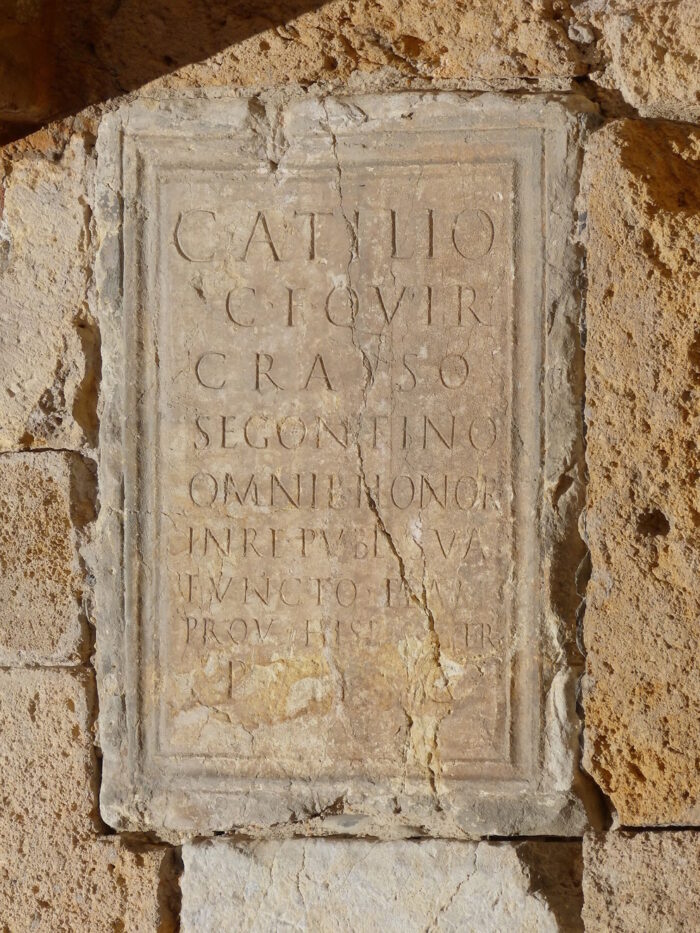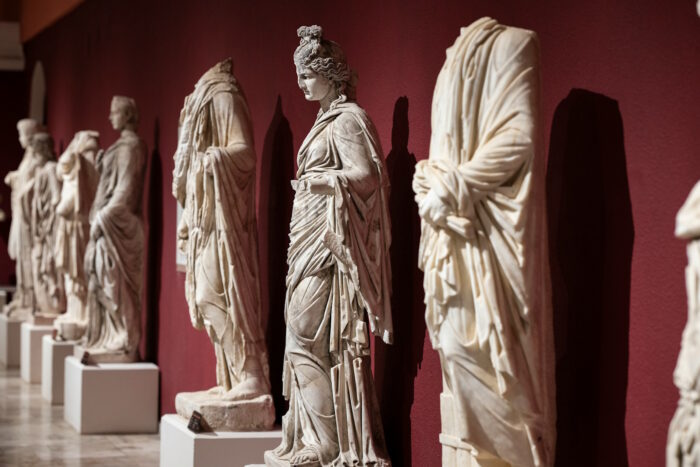Classics
- UCAS Code: Q800 (3 yrs) or Q801 (4 yrs)
- Campus Code: 4
- Duration: 3-4 Years
- Places per year: 2-4
Classics at Cambridge is the study of ancient Greek and Roman cultures, language, literature, philosophy, ancient history, art and archaeology.
If you have Latin A Level (or equivalent), you would apply for the 3-year course. If you have little or no Latin, you would usually apply for the 4-year course (though get in touch with us if you have Classical Greek A Level or equivalent instead).
For an overview of the course content, visit the Classics course page on the University website. For information about applying for this course at Trinity Hall, continue reading this page!

Classics
Looking for something specific? Use these quick links to get to where you want to go…

Entry Requirements
Minimum Offer Level
A-Level: A*AA
IB Diploma: 42 points, with 776 at Higher Level
Other: See the University’s Entry Requirements page
Subject Requirements
For the 3-year course, you will need A level/IB Higher Level (or the equivalent) in:
- Latin
If you do not study Latin, but instead study Classical Greek, please contact us for advice.
For the 4-year course, we don’t ask for any specific subjects. However, we would recommend any of the following subjects for a strong application:
- Classical Civilisation
- English (language or literature)
- History
- Languages (ancient or modern)

Admissions Process
Written Work
Two school essays on any subject. You do not have to send this work before applying; we will write to you after you have applied and let you know exactly what you need to send and when.
Admissions Assessment
If shortlisted for interview, this will include an admissions assessment. The assessment will be part of the interview process. If you have applied for the three-year course, it will be a Latin or Greek skills assessment. If you have applied for the four-year course, it will be a language aptitude assessment. Each of these will be around 20 minutes in length. The College will register you for this – you do not need to register yourself.
See also the University website’s page on College Admission Assessments.
Interviews
Two interviews, around 25 minutes each.
Video Resource
Going beyond what you learn at school and engaging with super-curricular resources is a great way to develop your knowledge of your subject and demonstrate your passion at interview.
Watch this video of Professor Mary Beard and Stephen Cox RA discussing art in antiquity to learn more about Classics.